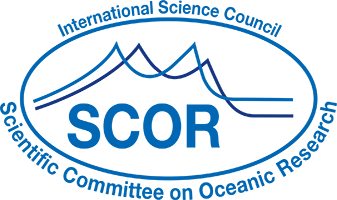We are thrilled to let you know that the Global Greenhouse Gas Watch (G3W) Implementation Plan has been endorsed!
Thanks to the excellent work of the Joint Study Group on WMO Greenhouse Gas Monitoring (SG-GHG), the G3W Implementation Plan has been approved by INFCOM-3 (the WMO Technical Commission for Infrastructure) in April 2024, and by EC-78 (the Executive Council of WMO) in June 2024. We all owe a big Thank You to Adrienne Sutton (IOCCP SSG, NOAA, US) and Richard Sanders (IOCCP SSG, NORCE, Norway) for leading the writing of the Implementation Plan for the surface ocean CO2 (SOCONET and SOCAT). Other (SOCONET & SOCAT) contributors to the IP are Dorothee Bakker, Kevin O’Brien, Thanos Gkritzalis, Tobias Steinhoff, Bronte Tilbrook, Ronnie Noonan-Birch and Maciej Telszewski.
With that step, the G3W Implementation and Pre-Operational Phase (G3W-IPP, 2024-27) has officially started. The flagship-level scenario estimated for G3W at $1 billion over the financial period 2024-2027 is a target for the resource mobilization discussed at the 44th WMO financial committee in June 2024. To realize the G3W ambitious goals, WMO is seeking support from various donors, including members, climate funds, philanthropy, and private sector. Contributions to the G3W trust-fund are open to all entities to enable firstly to resource the WMO Secretariat with support staff assisting on the G3W implementation priorities.
Key outcomes of the G3W-IP in 2024-2025 will be the surveys of existing and emerging technologies and capabilities, necessary for (1) deploying a global sustainable greenhouse gas observing network, (2) enhancing the global and regional modelling systems, moving from research to operations, (3) channelling standardised data into the WMO Information System to facilitate global uptake and impact.
IOCCP continues its work with and within GOOS structures and in partnership with our sponsors (SCOR, US NSF, US NOAA, IOC-GOOS, EU OceanICU), to implement specific actions of the G3W IP for the benefit of our community. Currently we strongly focus on formalizing and strengthening SOCONET, developing coordination structure for regional and global observational efforts to integrate N2O measurements with existing GOOS observing networks, and transitioning SOCAT funding structure into one that's sustainable and resilient. All these activities stem from the community-developed Declaration on Operationalising the Surface Ocean Carbon Value Chain, published in January 2024 as an outcome of a series of community workshops held at the Flanders Marine Institute (VLIZ) in Oostende, Belgium and online (6-9 November 2023).





 Please wait...
Please wait...